Quality Solutions

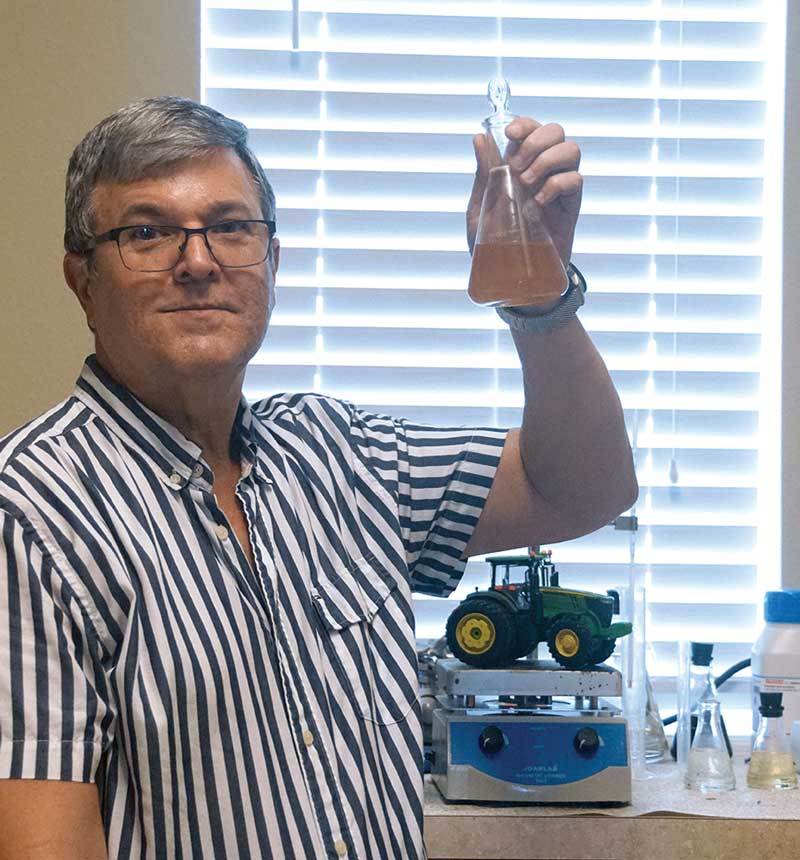
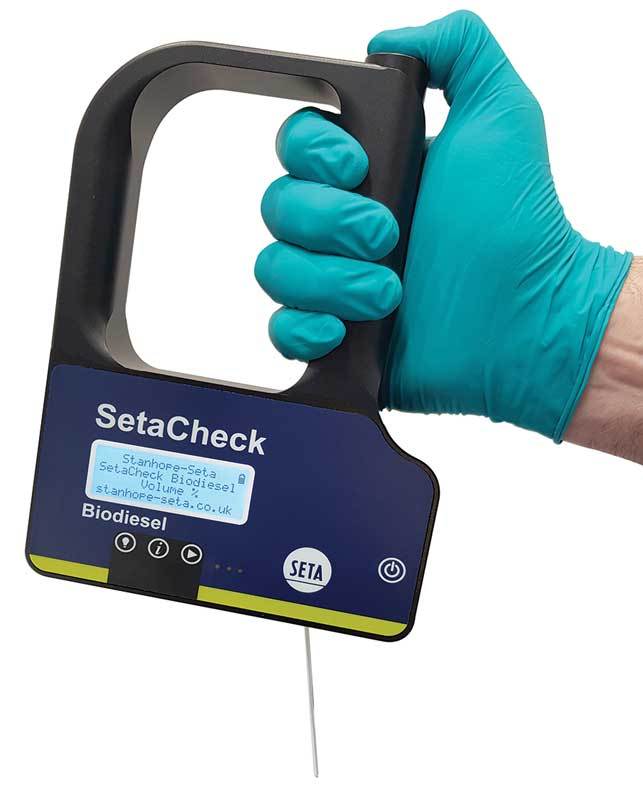
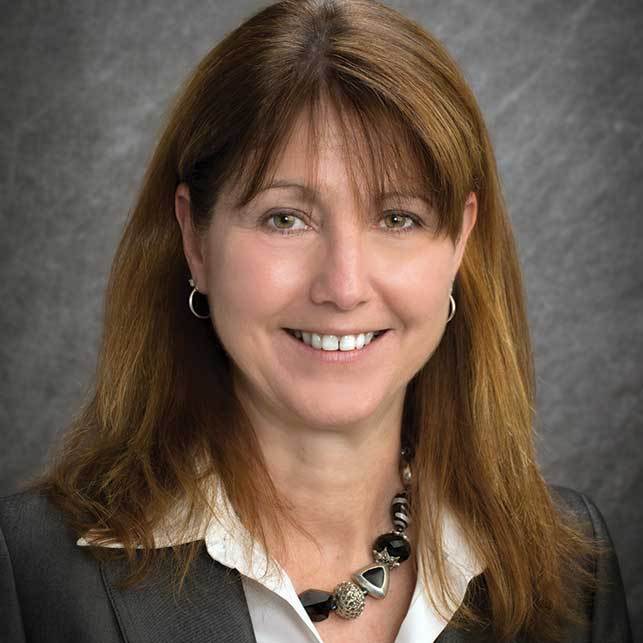
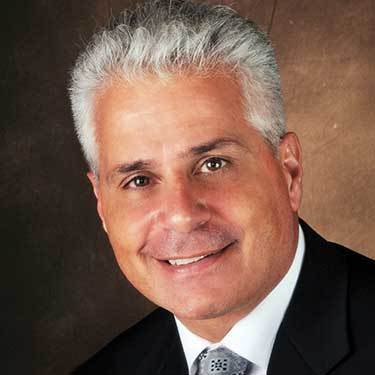
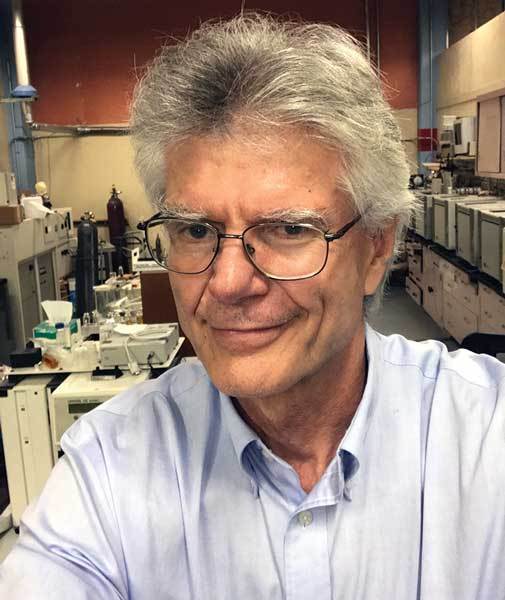
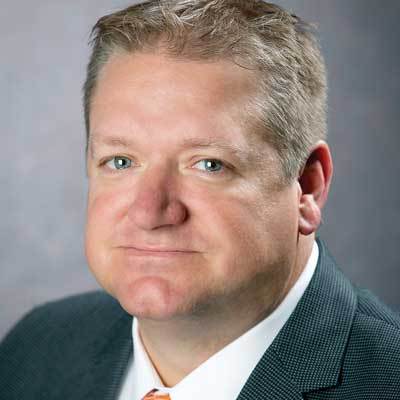


July 12, 2019
BY Ron Kotrba
GlobalTech Fluids
Oscar Domingo is more than a visionary embodying disparate passions of chemical ingenuity and environmental stewardship. He’s a doer. After developing organic engine coolants and other functional fluids for automakers in Venezuela 25 years ago, he and his family came to the U.S. to safely continue development of his green technology as the social situation back home crumbled under the Chávez regime. Leaving everything behind, Domingo settled in Orlando, Florida, where he launched GlobalTech Fluids, a company dedicated to development and commercialization of glycerin-based engine coolant and hydraulic fluids.
The most important partners in Domingo’s new endeavor are biodiesel producers. Not only do they make the base fluid at the heart of his vision, but many are located in ag country where farmers—heavy users of functional fluids and those who can benefit most from organic derivatives—are concentrated. “Spills can be detrimental to soil,” Domingo says. “If glycerin-based fluids spill, they have a fertilizing effect.”
A technical specification exists for low-toxicity fluids used in environmentally sensitive areas. “But heretofore these low-toxicity fluids have been expensive—five to 10 times the cost of petroleum-based fluids,” Domingo says. “By creating fluids from a biodiesel coproduct, we create a finished product that may actually have a cost advantage.” With that, people pay attention. “The challenge,” Domingo says, “is communicating the existence of such products, and finding marketing partners who can produce and deliver to people who can use them.”
With minimal investment, biodiesel producers can partner with GlobalTech Fluids to add significant value to their crude glycerin—a much-needed boost to bottom lines when margins are tight. Salt is the only real contaminant that must be removed from the crude glycerin before upscaling. “This can be done by a membrane filtration system,” Domingo says. The biodiesel producer must also have a blending tank and storage capacity for the desalinized crude glycerin and any potential blending fluids—whether this be water, 1,3 propanediol, propylene glycol or ethylene glycol.
“Once the crude glycerin is desalinated, the question becomes, ‘What are we making today?’” Domingo says. Which functional fluid the plant chooses to make determines which blend agent is used. The technology is flexible enough that the final products can be tailored to the climactic and geographic region of the producer, but a general-purpose fluid can be made too.
The partner-producer stores inventory of GlobalTech Fluid’s multifunctional additive package in 55-gallon drums. The proprietary additive package is the same whether making coolant or hydraulic fluids. “It’s a blend of carboxylic acids, lubricity improvers, antifoaming agents and corrosion inhibitors,” Domingo says. “It’s performance-improvement chemistry. The desalinated, crude glycerin can be used with the GlobalTech Fluids’ chemistry alone, or mixed with water, or another molecule. It’s literally just a blend.”
Domingo sees the end of petroleum-based lubricants on the horizon with himself on top of a new wave of high-performing, organic replacements. “That’s my vision,” he says. “To protect equipment, but in a much more environmentally friendly way.”
Stanhope-Seta
U.K.-based Stanhope-Seta has a long history of producing high-quality laboratory analysis instruments. Over the years, it has focused heavily on measurement of fatty acid methyl esters (FAME), specifically in jet and marine fuels under the respective ASTM D7797 and D7963 specifications. “We’ve applied our experience and expertise to bringing fast, accurate testing of fuels to the wider end-user market,” says Matt Fielder, Stanhope-Seta’s market development manager. “The goal has been to see more lab-type testing done real-time in the field at affordable prices to the end user.”
Enter SetaCheck Biodiesel SA5500-0—a truly portable, hand-held device that enables quick, accurate, on-site measurement of biodiesel content with a measurement range of 0.1 to 40 percent, with precision to one-hundredth of a percent. “Typically, the Fourier-transform infrared laboratory instruments can go down to a tenth of a percent,” Fielder says. “Our unique ‘FAME in Jet Instrument’ technologies can measure to parts-per-million levels. The SetaCheck handheld is a subset of the FIJI technologies and gives laboratory performance in a highly portable device. Knowledge gained from development of FIJI instruments and standards, coupled with our brilliant product design engineers, has led to the repackaging of critical elements of the technology for wider portable use. We’ve looked at and evaluated many different techniques and designs for a true handheld product—and we believe we have finally created that tool.”
A number of reasons exist why such a portable, rugged, easy-to-use field instrument is essential to rapidly and accurately checking biodiesel content in diesel fuel. “For blenders and users, proving your blend ratios are correct allows correct management of tax credits and associated income,” Fielder says. “The SetaCheck device allows a rapid and accurate check that the fuel delivered meets expected specifications,” particularly important in splash-blended fuels. Furthermore, SetaCheck allows for a rapid check of a vehicle tank’s contents. “Vehicle and engine manufacturers all warranty engines under certain running conditions, and biodiesel content is one of the parameters,” he adds. “A rapid check by service centers of vehicle fuel immediately confirms whether the biodiesel content meets the requirements of the manufacturer.”
Those who could benefit from such a device include oil majors and pipeliners all the way down to truck stop operators and system-critical applications. “This device is perfect for anyone needing immediate, accurate, repeatable results to prove what they purchased is what the supplier says it is,” Fielder says. “Realistically, there is no comparable instrument available. It’s rugged, robust, very simple to use with exceptional repeatability and precision. As for price, the instrument cost falls significantly below that of existing technologies.”
In March, ASTM announced a proposed standard, WK55232, under development by the D02 committee to allow use of portable, rapid, mid-infrared analyzers. Fielder says WK55232 successfully passed the D02 Sub 04F ballot and, at press time, a D02 main ballot was imminent. “The benefit of having an ASTM method highlights the process that we as a company have had to work through to ensure resilience, robustness and suitability for the U.S. market,” he says.
Effective fuel quality control can now be performed outside the lab, Fielder says. “It doesn’t have to be expensive, and you don’t need super hi-tech equipment and a degree to operate it.”
Top Tier Diesel Fuel
Following a successful 2004 launch of the Top Tier Detergent Gasoline program, a consortium of diesel engine OEMs unveiled Top Tier Diesel Fuel in 2017—a volunteer retail program to improve diesel fuel quality. “Advanced diesel engines designed to meet increasing emissions standards require precise control of fuel combustion,” says Jo Lynne Parsons, Top Tier program manager with the Center for Quality Assurance, which runs the Top Tier licensing programs for the OEM sponsors. “These engines cannot tolerate impurities such as water, particles and deposits.The fuel must be extremely clean to avoid damaging fuel system components. Proper fuel chemistry can prevent corrosive acids, peroxide, gums and deposits. Current industry standards do not address all the fuel quality concerns and issues, hence the creation of Top Tier Diesel Fuel.”
The voluntary program is available to site-specific retailers meeting the requirements of the program’s performance standard, which includes stability of diesel and biodiesel-blended fuels to prevent deterioration during storage and use; deposit control to help prevent injector deposits; lubricity to minimize wear on fuel injectors and pumps; and fuel cleanliness, particularly water and particulate control. “It’s important to realize that additive companies develop and test the packages to the performance standard, so the retailer or supplier only needs to use an approved Top Tier Diesel Fuel package at the proper treat rate and additized at the terminal,” Parsons says, adding that no-harm testing may also be necessary. She says filtration and water control are site-level requirements. “No modifications are necessary to the dispensers to use the proper filters,” Parsons says. Once the retailer’s ability to meet the requirements is established, an agreement detailing terms and conditions, such as displaying the Top Tier Diesel Fuel logo at the site, is signed.
The program includes qualification for biodiesel based on enhanced stability requirements—an eight-hour minimum Rancimat induction time for B100 vs. three hours in ASTM D6751. “The program is based on performance requirements that do not limit use of biodiesel to any specific blend level,” Parsons says. “The engine manufacturers and automotive companies created the Top Tier program to address fuel properties that can result in engine issues. The original effort was to improve all of the market fuel, but we were not successful in gaining enough votes at ASTM or the National Conference on Weights and Measures to change the standards. We noted there were, however, some fuel producers and marketers supportive of the increased standards, which already met some of the changes desired. Thus, Top Tier Diesel Fuel was created in the spirit of working with these fuel marketers and producers to recognize those willing to offer fuel preferred by vehicle, equipment and engine manufacturers based on testing and data. OEMs in turn recommend Top Tier to their customers so they can easily recognize the preferred fuel and where it can be purchased.”
Parsons says awareness of the need for better diesel fuel quality is growing. “For example,” she says, “fleets are realizing the impact fuel quality has on downtime and maintenance costs, and retailers have seen the detrimental effects corrosion has on their equipment. But now there is a recognized standard they can refer to. Challenges still exist though, and the complexity of the diesel supply chain is not one to be taken lightly.”
Advanced Fuel Solutions
Paul Nazzaro built his career on being a disruptor. In the 1980s as a premium fuels manager for Coastal Corp., then a multibillion dollar vertically integrated refiner, he quickly observed that sales relied on lowest price. “I had to disrupt that system,” he says. “I knew then I couldn’t spend my career hoping to gain customers’ attention based on lowest price.” Nazzaro then focused on product differentiation for years until corporate downsizing in 1994 jettisoned him straight into launching Advanced Fuel Solutions, now celebrating its 25th year.
“AFS began as a necessity for survival and flourishes by virtue of the support it provides customers to endure and excel in the everchanging energy landscape,” Nazzaro says. “From day one it was my goal to build a company that relied upon adhering to a consultative approach to establish all our relationships.” Starting with needs analyses, which brother Lou coined “the Optimum Discovery Process,” Nazzaro founded AFS on asking prospective customers “lots of questions” to determine what challenges impact their bottom lines.
AFS is a consultative additive supplier navigating between fuel buyers and sellers to improve clients’ market positions. “No shelf additive package will accomplish that,” Nazzaro says. “We differentiate ourselves by integrating an unmatched consultative approach to additive use.” Its clientele is diverse, ranging from heating oil jobbers and diesel distributors to terminal operators, traders, renewable fuel producers and marketers, fleets and government agencies.
Close relationships with major additive manufacturers allow AFS to handpick products from vast portfolios to formulate custom packages based on client needs. “We follow the molecule to the fuel dispenser and provide counsel to transportation fleets on all aspects of fuel quality management, including procurement programs proven to save thousands of dollars on fuel expenditures each year,” Nazzaro says.
AFS can introduce its custom formulas anywhere in the supply chain, treating fuel from barges into bulk storage, at the rack through electronic blending, or onboard trucks offloading into customers’ vehicles or on-site storage. “We scour the nation for relevant, innovative technologies that help us help our customers differentiate and prosper,” Nazzaro says. How the additive will be stored, handled and blended on-site also makes a difference in success, says Nazzaro, who has long been a vocal proponent of good fuel storage system housekeeping as integral to quality management.
Over the years, AFS’s services and products have evolved to meet changing fuel slates, evolving hardware and regulatory demands. As biodiesel entered commercialization, Nazzaro had already spent years working to understand the challenges and opportunities it provides fuel companies. Today he is a leading biodiesel expert. “Naysayers became adopters when they found out biodiesel delivers on its promise,” he says. Nazzaro points out how governments are legislating petroleum companies out of business. “Without a low-carbon fuel option like biodiesel, they will eventually be passed over for what we now call the electrification of everything,” he says. “Biodiesel’s value proposition is a right to survive.”
Nazzaro’s vast expertise has been imparted in, shared with and built alongside the entire AFS team, which includes brother Lou and son Paul Jr. “You could say AFS stands for ‘A Family Solution,” Nazzaro quips. He says building additive packages that balance performance and cost is an art. If so, then Nazzaro is a Picasso.
RW Heiden Associates
Richard Heiden has been investigating biodiesel phenomena for more than 25 years, and his groundbreaking work has contributed greatly to a better understanding of biodiesel properties and the improvement of test methods and fuel quality.
Heiden’s entrance into biodiesel research was a project for the National Biodiesel Board in the early 1990s. “It really piqued my interest,” he says. This work involved examining possible methods to determine B100 purity, which eventually morphed into ASTM D6584, the method to determine biodiesel’s free and total glycerin content. “Out of that work I met key researchers and developers of biodiesel,” Heiden says. “When the commercialization of biodiesel grew in the early 2000s, a project on fuel filtration blockage issues from the Pennsylvania Turnpike Commission was landed, which spurred research into solubility-related questions.” While the PTC is no longer involved, Heiden says this work continues today.
Heiden has recently seized the opportunity to document more than 10 years of research into the causes of fuel filtration blockages and improvements in analytical methodology. “This work now involves international collaborations, and some university support,” he says. “Almost yearly, advances in this work are presented at national or international AOCS meetings.”
R.W. Heiden Associates’ full-service laboratory is located in Lancaster, Pennsylvania, once a hotbed of regional biodiesel activity. “Initially, we offered ASTM D6751 services to local firms with intentions to offer a range of other services later,” Heiden says. “As the local market for these services declined, we began to focus on other services based upon earlier experience and training, such as specialized analyses of materials obstructing fuel filters, impurity investigations, corrosion incidents, industrial water, plastic failures and feedstock-quality monitoring.” The company also offers support services involving patents and other legal matters. “All in all,” Heiden says, “the company is stronger as a result of this diversification.”
The lab’s client base is nationwide and, thanks to unique learning experiences and greater availability of instrumentation, the services offered are broader than ever. “Now, the lab is much more short-term project oriented, while addressing routine testing requests as well as longer-term research,” Heiden says. In addition to routine ASTM testing, R.W. Heiden Associates specializes in nonroutine biodiesel testing and glycerin analysis. “At the moment, we’re working on a variety of challenging projects that call upon developed skills and long-term experience as process engineers, materials scientists and analytical chemists,” he says. Furthermore, the super sleuths offer special services to address feedstock contamination. “The result is remarkable improvements in feedstock quality for customers using our testing services,” Heiden says.
Lab capabilities include a suite of inhouse tools for analyzing complicated mixtures and materials, offering a breadth of different analytical approaches. R.W. Heiden Associates also leverages university assets as needed.
Since establishment of his company in 1987 through today, Heiden has been a reliable problem-solver who carries his work out with integrity and diligence. His expertise in biodiesel quality is second to none, and his candor on quality issues should be heeded. “The published minimum quality specifications for B100 are in some cases inadequate for optimal performance of a diesel engine or fuel infrastructure in all circumstances,” he says. “Just meeting these specifications raises the chance for considerable problems down the road, and it is wise to ratchet downward impurity levels to well-below current standard specifications.”
Biodiesel Coalition of Missouri
The Biodiesel Coalition of Missouri officially formed as a bona fide state trade association in March 2018, but chairman James Greer, also vice president of supply and government affairs with member company MFA Oil Co., says the partnership to grow biodiesel usage in Missouri began as an informal working group nearly five years ago. “Last year we came together to take the next step—forming the Biodiesel Coalition of Missouri—to further unify our efforts in bringing together farmers, processors, distributors, retailers and others already working with biodiesel, along with those interested in the benefits biodiesel brings,” Greer says.
The coalition and its partners are working directly with Missouri farmers to highlight biodiesel’s benefits to their bottom line. “In addition to hosting lunch-and-learn events for growers around the state over the past year, the Biodiesel Coalition of Missouri and Missouri Soybean Merchandising Council partnered to connect attendees at the Missouri Association of Counties annual meeting with the economic impact biodiesel brings to the Show-Me State,” Greer says. “Earlier this year, the coalition participated in both the Missouri Governor’s Conference on Agriculture and Missouri Pork Expo, highlighting the environmental benefits of biodiesel as well as the cost savings the biodiesel industry has created for livestock producers.”
The Biodiesel Coalition of Missouri has multiple membership options for biodiesel producers and distributors, as well as membership opportunities for stakeholders. “The coalition has two classes of voting members, as well as two options for nonvoting partner-memberships,” Greer says. Membership continues to grow from the original informal working group partners to include broader industry representation. Current members of the Biodiesel Coalition of Missouri include big-name ag companies with biodiesel production in Missouri such as Archer Daniels Midland Co. and Cargill Inc., along with their joint-venture biodiesel manufacturing facilities such as Mid-America Biofuels LLC and Paseo Biofuels LLC, to fuel cooperatives such as MFA Oil Co., and organizations like the Missouri Soybean Association and National Biodiesel Board.
One of the most significant problems the Biodiesel Coalition of Missouri is addressing today is the sizable gap between the state’s robust biodiesel production volumes and biodiesel’s rather sparse retail availability in Missouri. According to data from Biodiesel Magazine’s 2019 U.S. & Canada Biodiesel Plant Map, Missouri is third in the nation for biodiesel productive capacity with 242 MMgy, trailing only Iowa and Texas. “However,” Greer says, “we have fewer than two dozen retail locations across the entire state consistently offering biodiesel.”
Greer says the coalition’s challenge in addressing the gap between Missouri’s biodiesel production and retail availability is two-fold: awareness and infrastructure. “Consumers and retailers aren’t likely to seek out fuel they’ve not yet been introduced to,” he says, “and with the limited retail offerings for biodiesel in Missouri, it’s unlikely people would encounter the fuel by chance. Investing in infrastructure to offer the fuel, including prioritizing tank and pump space for biodiesel blends and appropriate labeling, would be directly tied to that consumer demand.”
There is great opportunity for biodiesel in the fuel market, “and the challenge of growing demand isn’t unique to Missouri,” Greer says. “Driving demand for biodiesel, through education and policy, is a challenge being addressed in many ways across the marketplace.”
Reiter Software
Kristof Reiter founded Reiter Scientific in 2007 as a one-man consulting firm helping fix biodiesel production issues, performing process and design work at plants. As the company grew and evolved, Reiter Scientific branched out into trading and logistics. Three years ago, Reiter began developing software to streamline grease collection processes. “What I observed of these small startups is that, once they got to a certain size, they didn’t have the data systems to scale up,” Reiter says, adding that tailored software solutions for grease collectors were unavailable. “There are other systems made for related industries, but they just don’t work,” he says. “That’s why we created COST—Cooking Oil Service Tier. It’s a solution to overcome the growth impediments faced by small grease collectors and biodiesel producers who collect their own used cooking oil.”
Reiter Software worked with several customers while developing the platform, continually making improvements based on beta feedback in order to digitize and simplify route optimization and tracking of fuel, accounts, profitability, contracts, employee hours, vehicles and more. Through fast-learning algorithms, COST’s accurate predictions on account service intervals help cut costs in half. The software standardizes procedures and allows owners reluctant to get out of the driver’s seat confidence to give up control through real-time employee oversight.
The money COST saves in labor, office hours and fuel is far greater than what it costs, Reiter says. The pricing structure is based on a minimal monthly fee to manage and maintain backed up, hosted, third-party data servers plus a nominal per-account fee. “We can save companies between $1 and $4 per month, per account serviced—depending on how unoptimized they are initially,” Reiter says. The user’s office staff manages the software from a desktop PC or Mac. Field employees can use older iPads for navigation routes and data entries.
Setup is simple and fast, and Reiter Software is currently offering free basic setup. “All we need is key account data to get the system running,” Reiter says. “We enter this into the system once they provide us an Excel document. It takes three days. After that, there’s a couple hours of training. We take what they’re currently doing—planning, routing, scheduling—and have our software replicate it.
The system begins gathering data and the algorithms begin to learn, and then they can really start playing with the advanced features to change how they run their business.” Reiter says users are responsible for tablet costs and can retain whichever service carrier they prefer. The program generates paper route sheets too, in case a tablet breaks or the driver enters a zone with no data coverage.
“Other important aspects are that the software makes users California-compliant, and it can be a part of an ISCC certification to trace feedstock back to its origin,” Reiter says. “It implements best practices across the organization, standardizes procedures, digitizes everything, and is always being updated with new features driven by client requests.”
Reiter says customers do not have to work with Reiter Scientific to work with Reiter Software. “Many have close relationships with their traders, and we respect that,” he says. “But if they want the best software in the industry, then give us a call.”
Advertisement
Advertisement
Related Stories
Clean Fuels Alliance America on June 10 announced the launch of the newly redesigned BQ-9000 website, delivering a streamlined and user-friendly experience that better showcases the value of biodiesel quality assurance.
Pertamina, a national energy company in Indonesia, has successfully condcuted static tests on sustainable aviation fuel (SAF) on CFM56-7B jet engines commonly used in commercial aircraft at GMF Aeroasia's Test Cell facility.
Iowa Central Community College on July 17 broke ground on a an expanded fuel testing lab that will benefit ethanol, biodiesel and other types of fuel. The new biofuel testing lab is expected to be complete in the fall of 2024.
NREL released its Assessment of BQ-9000 Biodiesel Properties for 2022. The report documents the quality of biodiesel from U.S. and Canadian-based producers that participate in the industry's voluntary quality assurance program, BQ-9000.
North American SAF Conference & Expo announces agenda
SAF Magazine and the Commercial Aviation Alternative Fuels Initiative (CAAFI) announced the preliminary agenda for the North American SAF Conference & Expo taking place Aug. 29-30 at the Minneapolis Convention Center in Minneapolis, Minnesota.
Upcoming Events










